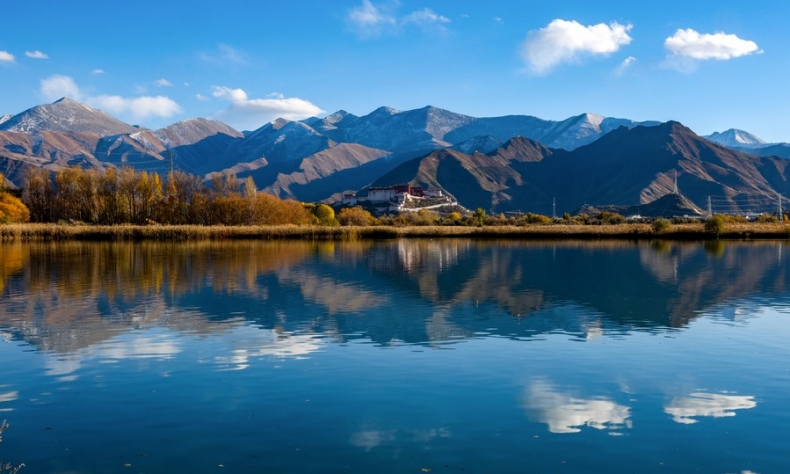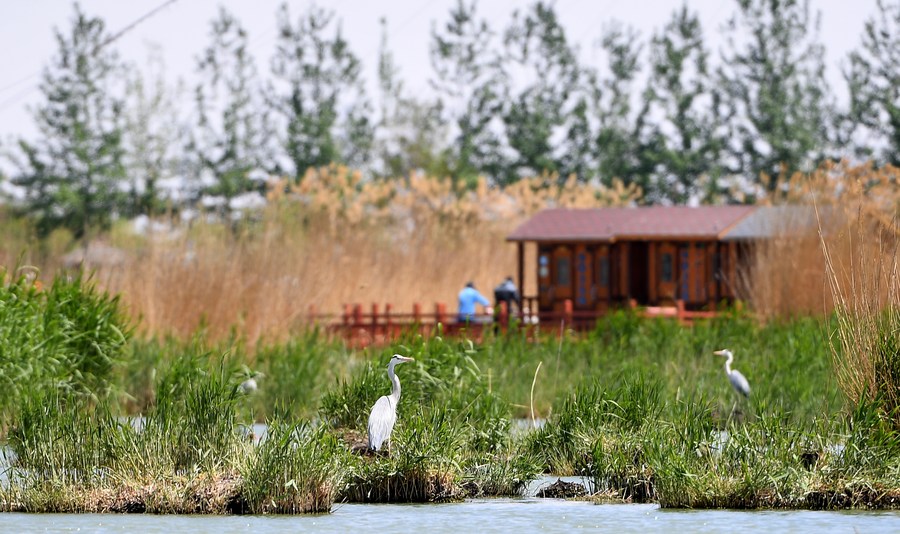Live and Let Flourish

To strengthen biodiversity conservation and promote ecological progress, the international community needs to team up and build a shared future for all life on Earth.
Chinese President Xi Jinping addressed the opening ceremony of the high-level segment of the second part of the 15th Meeting of the Conference of the Parties to the Convention on Biological Diversity (COP15) in Canada’s Montreal via video link on December 15, 2022. Noting that humanity lives in a community with a shared future, Xi said solidarity and cooperation are the only effective ways to address global challenges.
“A sound ecosystem is essential for the prosperity of civilization. We must work together to promote the harmonious coexistence of man and nature, build a community for all life on Earth, and create a clean and beautiful world for us all,” he said.
More than a year earlier, on October 12, 2021, President Xi had quoted a classic Chinese saying while delivering a keynote speech via video link at the Leaders’ Summit of COP15. “All beings flourish when they live in harmony and receive nourishment from nature.”
The sentence is from a critique written by Xun Kuang, a renowned philosopher in the late Warring States Period (475-221 B.C.). It upholds a development model that accommodates and respects nature and its laws—the only way to yield sustainable results.
Adopted at the 14th Meeting of the Conference of the Contracting Parties to the Ramsar Convention on Wetlands held from November 5 to 13, 2022 in China’s Wuhan and Switzerland’s Geneva, the Wuhan Declaration demonstrates China’s call for the global endeavor on wetland conservation.
Since China acceded to the Ramsar Convention on Wetlands three decades ago, 13 of its cities have been awarded the title of “International Wetland City”—in line with the convention’s standards.
China has established more than 600 wetland nature reserves and 900 national wetland parks. It has also introduced a law on wetland protection.

With 4 percent of the world’s wetland coverage, the country actively protects wetlands and smartly utilizes them, meeting the diverse needs of its population, which accounts for about one fifth of humanity.
Located on the Qinghai-Tibet Plateau, the Sanjiangyuan area is home to the headwaters of the Yangtze, Yellow and Lancang rivers. The nature reserve established there is the country’s largest. A unique landform, abundant wildlife, colorful grassland vegetation and beautiful rivers… Together, they form a mesmerizing natural landscape.
In April 2021, a wandering herd of 15 wild Asian elephants in Yunnan Province embarked on their journey north and later returned to their original habitat in the Mengyangzi Nature Reserve in Xishuangbanna Dai Autonomous Prefecture. On their trek, they enjoyed rest and food in the forest and were left alone when traveling through human settlements. This harmonious coexistence between people and wildlife not only reflects improvements in China’s natural environment but also shows improved public awareness of ecological conservation.
Today, China has more than 2,750 nature reserves, with 90 percent of terrestrial ecosystem types under effective protection.
Giant pandas, the country’s national treasure, are no longer endangered and have been reclassified as a vulnerable species after decades of efforts to grow their population.
The Chinese Government and people regard biodiversity conservation as an important part of ecological progress. They have strengthened and innovated related measures, contributing their fair share to addressing global biodiversity challenges.
The Earth’s biodiversity relates to human wellbeing; its protection is of pivotal importance to our survival and development. To strengthen biodiversity conservation and promote ecological progress, the international community needs to team up and build a shared future for all life on Earth.
China has been a proactive player in international cooperation and has assisted other developing countries, assuming a positive role in helping realize the vision of harmonious coexistence between people and nature.
 Facebook
Facebook
 Twitter
Twitter
 Linkedin
Linkedin
 Google +
Google +










